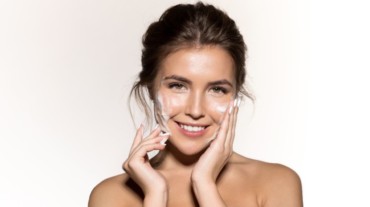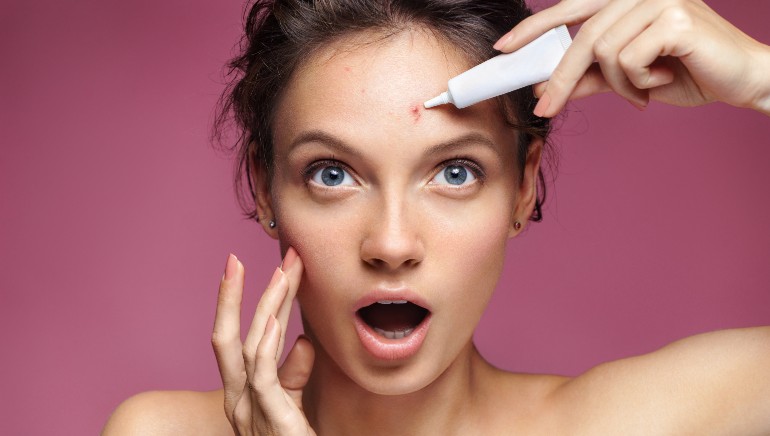
Sodium Bicarbonate, more commonly known as baking soda, is found in all households thanks to its multiple uses. We use it not only to bake some sweet goodies but also to get rid of funky smells as well as acid reflux. When used correctly, baking soda can be a true life-saver.
In recent times, however, baking soda has found another use which is getting rid of acne. Multiple beauty influencers are claiming that it works and the internet is bustling with face pack recipes featuring baking soda.
While we’re fairly open to new ideas, this one definitely needs some investigation. So we asked Dr Sonal Bansal, consultant dermatology, Fortis Memorial Research Institute, Gurugram to tell us if baking soda can actually fix acne. And she says…
Baking soda CANNOT cure your pimples
Firstly, there is no scientific evidence or study that states that baking soda can help clear up acne or even prevent it.

Secondly, there is scientific evidence suggesting that baking soda can legit ruin your skin. And it’s got to do with the pH of baking soda. While seven is neutral, anything below it is acidic and anything above it is alkaline. Now, a healthy and recommended pH for our skin is 5.5, which means our skin is acidic in nature. However, sodium bicarbonate is actually alkaline. This can offset the pH balance of your skin and cause trouble.
In fact, according to Dr Bansal if you use baking soda to treat acne, it can actually have the opposite effect and leave you with scars because it might end up burning the skin.
“Anyone suffering from acne should not use harsh ingredients on the skin. Skin that is prone to acne is extremely sensitive and you shouldn’t go for such offbeat home remedies because it might end up doing more harm than good,” she concludes.
So, ladies, don’t fall for whatever you see on Instagram. When it comes to your skin, only you know what suits you best and baking soda ain’t it.